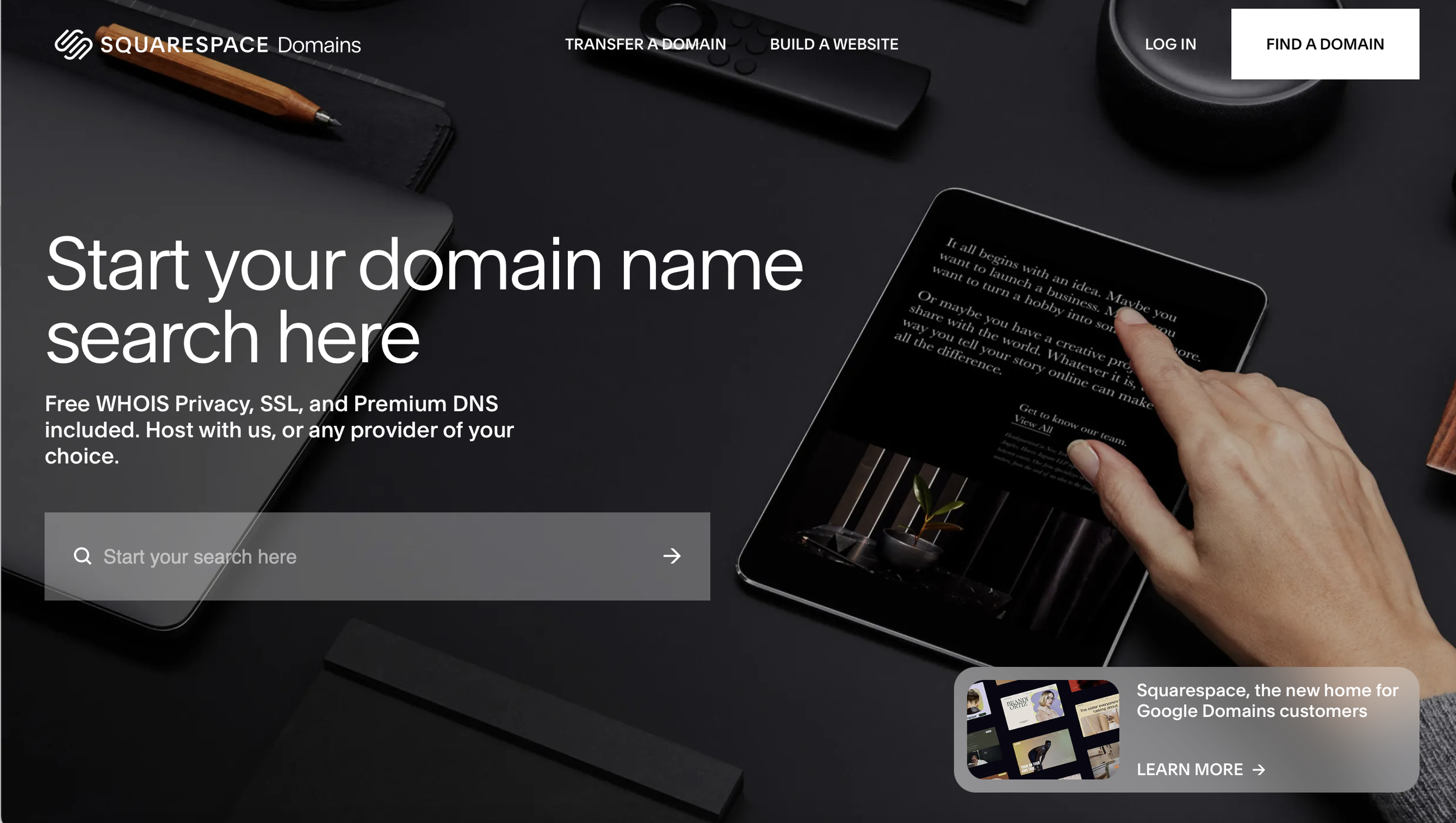Your Comprehensive Guide to Choosing the Perfect Domain Name
Having a reliable website is absolutely essential for your small business! It’s your shining gateway where potential customers discover the amazing offerings you bring to the table and decide to connect with you. But remember, the appearance of your website is just one piece of the puzzle for success. Choosing the right domain name is a crucial step in creating a powerful online presence. Your domain name isn’t just a label; it embodies your brand and plays a vital role in boosting your website’s search engine optimization (SEO).
This guide is here to empower you with all the essentials for choosing and managing a domain name that will elevate your small business! You'll be making informed decisions that set you on a path of long-term success and fulfillment. Let’s dive in and unlock your business’s full potential together!
First, What is a Domain?
Think of your domain name as the digital address that opens the door to your business! Just like customers need to find your physical location to step into your store, they need your domain name to discover your online presence. Your domain is made up of two powerful elements: the name (like "yourbusiness") and the extension (such as ".com", ".net", ".org"). Each domain is unique to the business that chooses it, a one-of-a-kind address that can't be shared with anyone else in the world! This is your first step toward creating a vibrant brand identity that resonates with your audience. So, let's claim it and begin your journey to a successful website!
Why Do I Need a Domain?
A domain name is essential for several reasons:
Professionalism: A custom domain name enhances your business’s credibility. Imagine receiving an email from info@yourbusiness.com versus yourbusiness@gmail.com. Which would you trust more? The former appears far more professional and trustworthy.
Branding: It helps in building and reinforcing your brand identity. Your domain name is often the first interaction a potential customer has with your brand, so it should be memorable and reflective of your business.
Accessibility: A memorable domain name makes it easier for customers to find you online. If your domain is easy to recall, customers are more likely to visit your site directly rather than searching for it.
SEO: A relevant domain name can improve your website’s search engine ranking. Search engines look at your domain name to understand what your website is about, which can affect how you rank in search results.
How Does My Domain Name Affect My SEO?
Your domain name can significantly impact your SEO. Here’s how:
Keywords: Including relevant keywords in your domain can help search engines understand your website’s content and improve your rankings. For instance, if you own a bakery in New York, a domain like nybakery.com could be beneficial.
Brand Recognition: A unique and memorable domain name encourages more clicks and visits, indirectly boosting your SEO. When people remember your domain name, they are more likely to return to your site, increasing your site’s traffic and engagement metrics.
Domain Age: Older domains are often viewed more favorably by search engines, although this is just one of many factors. If you have the opportunity to purchase an existing domain that fits your business, it might give you an SEO edge.
Step-by-Step Guide to Registering a Domain
1. Select a Domain Service Provider
With so many domain service providers to choose from, it might seem overwhelming. But don't worry, we're here to guide you! Here's a quick review of a few top providers we recommend.
Squarespace:
Offers built-in domain services that are reliable and secure, providing users with a seamless experience.
Ideal for those who want an all-in-one website building and domain registration solution, making it perfect for creatives and businesses that value aesthetics and functionality.
NameCheap:
Known for affordability and transparent pricing, giving you great value without hidden fees.
Excellent for budget-conscious small business owners who need reliable domain services without breaking the bank.
PSST: This is my favorite choice since it is affordable and simple to manage.
GoDaddy:
A popular but pricier option that often employs aggressive upselling tactics, which might not be suitable for everyone.
Suitable for those who prefer a well-known brand with a wide range of additional services, including marketing tools and customer support.
2. Selecting Your Domain Name
Your domain name is your digital calling card—it should mirror your business and be a breeze to remember! This makes it effortless for customers to discover you online. A stellar domain name not only sets the stage for your brand but also boosts your visibility and credibility. When you're choosing a domain, think about incorporating keywords that resonate with your business to elevate your search engine ranking. Plus, securing multiple extensions or variations of your domain name can be a powerful way to protect your brand and keep competitors at bay.
Keep it Short and Simple: Shorter domain names are easier to remember and type. Aim for a name that is concise and to the point.
Make it Relevant: Choose a name that reflects your business and industry. Your domain should give potential visitors an idea of what you do.
Avoid Numbers and Hyphens: These can be confusing and are often misremembered. Stick to letters for clarity and ease of use.
Choose a Domain Extension: Common extensions include .com, .net, .org, but there are many others such as .co, .biz, etc. The extension you choose can impact how people perceive your website.
Check Availability: Ensure your desired domain name isn’t already taken or trademarked. You can use domain registrar tools to check the availability of your preferred names.
3. Register Your Domain
To register your domain, each provider will have different steps. You will be able to easily find these instructions on the domain services website, and if needed, their customer service will also be able to help with this process. Should you need a helping hand, reach out to us before you click a purchase button - we would love to help! Together, we'll set the stage for a successful project kickoff, ensuring everything is perfectly aligned.
Tips for Managing and Renewing Your Domain
Set Up Auto-Renewal: Avoid losing your domain by setting up automatic renewals. Many registrars offer this option, and it can save you from the hassle of manual renewals.
Monitor Expiry Dates: Keep track of when your domain expires and renew it in advance. Missing a renewal can result in losing your domain name, which can be detrimental to your business.
Update Contact Information: Ensure your contact details are always up-to-date with your registrar. This is important for receiving renewal reminders and other important notifications.
Consider Multiple Years: Register your domain for multiple years to save money and reduce the hassle of annual renewals. Many registrars offer discounts for multi-year registrations.
Stay Alert: Be wary of unsolicited emails about renewing your domain from unknown sources, as these can often be scams. Always verify the sender before taking any action.
Choosing the perfect domain name and managing it like a pro is a game-changer for your online presence! Your domain is more than just a web address; it’s a powerful tool that can amplify your brand, boost your SEO, and make it a breeze for customers to find and remember you. By following this exciting guide, you’re embarking on a journey to create a professional and unforgettable digital identity for your small business, unlocking the potential for success and transformation.





